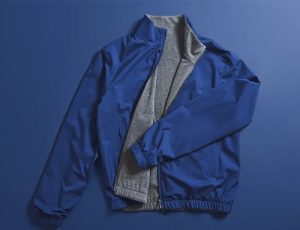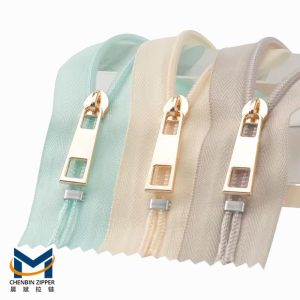Exploring the Basics of Zippers
Definition and Structure of Zippers
Zippers fastening devices in tons of different applications from clothing to luggage. These are two strips of fabric tape with interlocking teeth or coils, closed by a slider to open and close the zipper.
Components of a Zipper
Zipper consists primarily of tape, teeth or coils, sliders, and stops. To open or close the zipper, the slider travels along the teeth or coils. The ends have stops to keep the slider from falling out.
Functionality and Purpose
Zippers are closures found on clothing, bags, and various other items. They securely fasten the item in place while allowing easy and quick access by simply pulling the slider to open or close it. This mechanism ensures that items are securely fastened while making it convenient to operate the zipper with a simple pull of the slider.
Historical Development of Zippers
Evolution Over Time
Zippers have come a long way since they were created in the late 1800s. Zippers originally invented as a crude hook-and-eye device, are now intricate fastening mechanisms of many types used in a multitude of ways. What started out as a primitive hook and eye fastener design, zippers has evolved into an intricate fastening mechanism with countless types and uses.
Key Innovations in Zipper Technology
Key innovations include the development of different materials such as nylon, metal, and resin for zipper teeth. The introduction of coil zippers marked a significant advancement due to their flexibility and smooth operation.
Characteristics of Coil Zippers
Construction and Material
Coil zippers are constructed using nylon or polyester coils stitched onto a zipper tape. This construction offers several advantages over traditional metal or molded zippers.
Nylon and Polyester Coils
Nylon coil zippers have thin and supple nylon coils that are sewn on to polyester tape. This construction makes them slide over curves without causing irritation — the perfect material for clothes and accessories. Polyester coil zippers have associate equally advantages, however additional toughness. Polyester coil zippers are also along the same lines, but they are even more durable.
Flexibility and Durability
Coil zippers are known for their flexibility, allowing them to glide smoothly over curves without irritation. This makes them suitable for applications where comfort and ease of use are essential.
Applications of Coil Zippers
Use in Apparel and Accessories
Coil zippers are commonly used in apparel such as jackets, dresses, and skirts due to their lightweight nature. They are also popular in accessories like bags and backpacks where flexibility is crucial.
Advantages in Specific Industries
In industries such as upholstery, coil zippers offer seamless integration with fabrics for a neat finish. Their durability ensures long-lasting performance in cushions, pillows, and other upholstery projects.
Characteristics of Tooth Zippers
Construction and Material
Tooth zippers, unlike coil zippers, are characterized by their interlocking teeth made from various materials. These teeth are attached directly to the zipper tape, providing a distinct structure.
Metal, Plastic, and Other Materials
Tooth zippers may be made from metal or plastic. Metal teeth are cut and stapled right onto the tape, making for a secure closure. Therefore, they are a timeless selection in applications that demand more strength. Plastic teeth are generally injection molded as an integral part of the spool, look better than metal ones, and may be available in a wide variety of shapes and colors. Plastic teeth, often molded on the tape by injection, are more beautiful and exist in various shapes and colors.
Strength and Aesthetic Appeal
The construction of tooth zippers grants them significant strength, making them ideal for heavy-duty applications. The visible teeth also add a classic aesthetic appeal that is favored in many fashion designs.
Applications of Tooth Zippers
Common Uses in Fashion and Gear
Tooth zippers are commonly used in jeans, jackets, and backpacks due to their durability and strength. They are preferred in applications where robust fastening is necessary.
Benefits in Industrial Applications
In industrial settings, tooth zippers are valued for their ability to withstand tough conditions. Their durable nature makes them suitable for work wear and gear that require reliable closures under stress.
Comparative Analysis: Coil vs. Tooth Zippers
| Feature | Coil Zipper | Tooth Zipper |
| Construction | Made from nylon or polyester coils stitched onto tape | Made from metal or plastic teeth attached directly to tape |
| Flexibility | Highly flexible; glides smoothly over curves | Less flexible; may not glide as smoothly over curves |
| Durability | Durable; resistant to wear | Very durable; ideal for heavy-duty applications |
| Applications | Ideal for clothing, accessories, upholstery | Suitable for jeans, jackets, bags requiring extra strength |
| Aesthetic | Offers a smooth surface; available in invisible options | Visible teeth provide a classic look |
| Cost | Generally more cost-effective when purchased in bulk | Can be more expensive due to material costs |
Performance Differences
Durability Under Various Conditions
Coil zippers offer durability with resistance to wear, making them suitable for applications requiring flexibility and frequent use. In contrast, tooth zippers excel in heavy-duty scenarios due to their robust construction.
Ease of Use and Maintenance
Coil zippers provide ease of use with their smooth glide-over curves and minimal maintenance requirements. Tooth zippers may require more effort to operate smoothly but offer reliable performance once engaged.
Aesthetic Considerations
Visual Appeal in Design
Coil zippers can be discreet too, and also come in invisible styles that camouflage inside of fabric well. The tooth zippers have more of a traditional appearance and their visible teeth can add ruggedness or classic character to the design. Tooth, zippers present a recognizable appearance with exposed teeth that can add an industrial or classic touch to a design.
Customization Options Available
Both zipper types offer customization options; however, coil zippers allow for greater flexibility in terms of color and design integration due to their construction method.
Cost Implications
Price Differences Between Types
Since continuous zipper chains allow for cutting without waste, bulk purchases are often cheaper for coil zippers. Tooth zippers tend to be more expensive simply because the teeth are metal or a specialty type of plastic. Tooth metal zippers may cost more, due to the costs of materials and so on, for example, if the tees are metal or special plastic.
Long-term Value Assessment
Coil zippers are some of the most cost-effective and adaptable options for many different applications, whereas tooth zippers represent a better long-term investment due to their ability to stand up to continuous usage in tough environments when strength is a key consideration. Although coil zippers are more economical and thankfully allow more versatility for a range of uses ever, the tooth zippers provide great value for the long run in hardcore usages where strength is a necessity.







